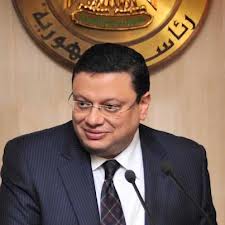CAIRO: While some Al-Azhar scholars have reportedly voiced their rejection of Grand Sheikh of Al-Azhar Mohamed Sayed Tantawy’s decision to replace the study of the four schools of Muslim jurisprudence with the study of his own book “Al Fiqh Al Muyassar (The Simplified Islamic Jurisprudence), others refused to comment on any of Tantawy’s actions.
“I refuse to comment on anything Sheikh Tantawy does, Sheikh Mahmoud Ashour, member of the Islamic Research Center, told Daily News Egypt.
On the other hand, Al-Azhar University Professor and MP Abdel Moeti Bayoumi told Al-Masry Al-Youm newspaper that he was astonished at the Higher Azhar Council’s decision to make such a change to the curriculum.
Tantawy’s book will reportedly become the only book on Islamic jurisprudence (fiqh) to be taught at Al-Azhar university institutions, replacing the interpretations of the four traditional school of thought (Abu Hanifa, Ibn Hambal, Al Maliki and Al Shafei).
Islamist lawyer Ahmed Al-Sayed, told Daily News Egypt that if Tantawy’s book incorporates the four schools of thought then he does not object to including it.
However, Al-Sayed continued, “If the book only adopts one point of view and ignores the rest, then it should not be the only one on the reading list.
Every opinion is subject to being either right or wrong, he said, and if Tantawy’s book only includes his point of view on Islamic law then forcing it on students and ignoring other points of view would be considered a violation of the right to freedom of thought.
“No Azhar authority should force certain ideologies and school of thoughts on students, Al-Sayed said, adding that Al-Azhar curricula should be determined by educational and religious experts and committees and not by an individual.
Al-Sayed was also skeptical of why changes in the curriculum were being introduced now.
Tantawy recently came under fire by the press when he announced, during an official celebration in Ramadan attended by President Hosni Mubarak, that severe punishments, such as 80 lashes, should be implemented on anyone who disseminates false information.
Tantawy’s remark coincided with the sentencing of five chief editors and two journalists to prison terms for spreading rumors about President Mubarak’s health and insulting members of the National Democratic Party.

